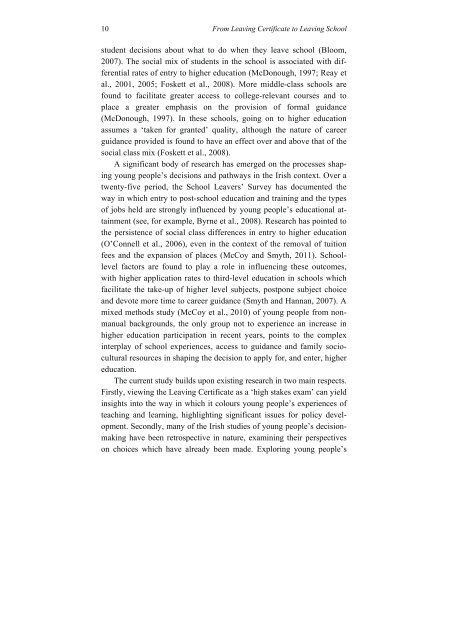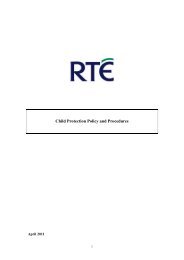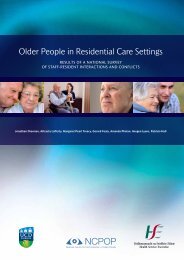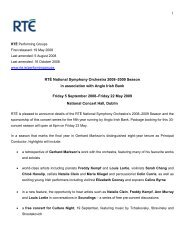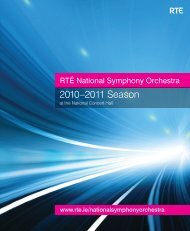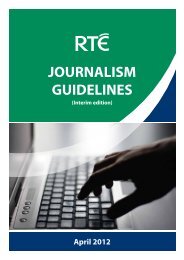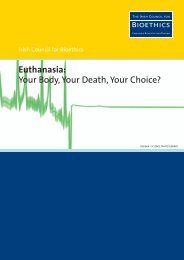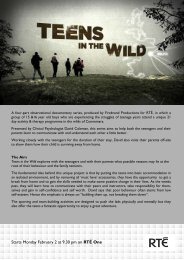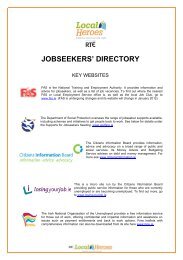From Leaving CertiFiCate to Leaving SChooL a Longitudinal Study ...
From Leaving CertiFiCate to Leaving SChooL a Longitudinal Study ...
From Leaving CertiFiCate to Leaving SChooL a Longitudinal Study ...
Create successful ePaper yourself
Turn your PDF publications into a flip-book with our unique Google optimized e-Paper software.
10<br />
<strong>From</strong> <strong>Leaving</strong> Certificate <strong>to</strong> <strong>Leaving</strong> School<br />
student decisions about what <strong>to</strong> do when they leave school (Bloom,<br />
2007). The social mix of students in the school is associated with differential<br />
rates of entry <strong>to</strong> higher education (McDonough, 1997; Reay et<br />
al., 2001, 2005; Foskett et al., 2008). More middle-class schools are<br />
found <strong>to</strong> facilitate greater access <strong>to</strong> college-relevant courses and <strong>to</strong><br />
place a greater emphasis on the provision of formal guidance<br />
(McDonough, 1997). In these schools, going on <strong>to</strong> higher education<br />
assumes a ‘taken for granted’ quality, although the nature of career<br />
guidance provided is found <strong>to</strong> have an effect over and above that of the<br />
social class mix (Foskett et al., 2008).<br />
A significant body of research has emerged on the processes shaping<br />
young people’s decisions and pathways in the Irish context. Over a<br />
twenty-five period, the School Leavers’ Survey has documented the<br />
way in which entry <strong>to</strong> post-school education and training and the types<br />
of jobs held are strongly influenced by young people’s educational attainment<br />
(see, for example, Byrne et al., 2008). Research has pointed <strong>to</strong><br />
the persistence of social class differences in entry <strong>to</strong> higher education<br />
(O’Connell et al., 2006), even in the context of the removal of tuition<br />
fees and the expansion of places (McCoy and Smyth, 2011). Schoollevel<br />
fac<strong>to</strong>rs are found <strong>to</strong> play a role in influencing these outcomes,<br />
with higher application rates <strong>to</strong> third-level education in schools which<br />
facilitate the take-up of higher level subjects, postpone subject choice<br />
and devote more time <strong>to</strong> career guidance (Smyth and Hannan, 2007). A<br />
mixed methods study (McCoy et al., 2010) of young people from nonmanual<br />
backgrounds, the only group not <strong>to</strong> experience an increase in<br />
higher education participation in recent years, points <strong>to</strong> the complex<br />
interplay of school experiences, access <strong>to</strong> guidance and family sociocultural<br />
resources in shaping the decision <strong>to</strong> apply for, and enter, higher<br />
education.<br />
The current study builds upon existing research in two main respects.<br />
Firstly, viewing the <strong>Leaving</strong> Certificate as a ‘high stakes exam’ can yield<br />
insights in<strong>to</strong> the way in which it colours young people’s experiences of<br />
teaching and learning, highlighting significant issues for policy development.<br />
Secondly, many of the Irish studies of young people’s decisionmaking<br />
have been retrospective in nature, examining their perspectives<br />
on choices which have already been made. Exploring young people’s


